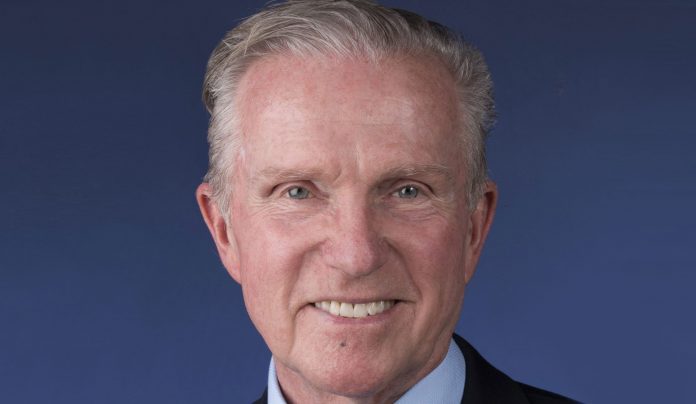For several months, I have been following news about the Physician Support Line launched by Dr. Mona Masood, a Philadelphia psychiatrist (1,2). As a longtime specialist in physician health, and member of many national committees studying the subject, I have participated in many discussions on initiatives like this, but nothing has ever materialized. So, I decided to call Dr. Masood, and we spoke by telephone on July 24, 2020. I asked her how she did it: “It was almost an obligation, I just had to try.” She put the idea out on a social media forum and one week later, the line was up and running!
The backdrop was this. Like many early career psychiatrists who are beginning to treat fellow physicians, Dr. Masood was struck by the plethora of worries and fears that her doctor patients were bringing to her: the embarrassment of reaching out for assistance; the self-reproach about living with normal human vulnerabilities; the reluctance to share their worries with peers, or feeling unsupported if they do; uncertainty about reporting requirements of hospital credentialing committees or state medical licensing boards; the worsening of symptoms because of delay or avoidance of coming for help.
Then COVID-19 hit. “The writing was on the wall,” Dr. Masood told me. Doctor patients and physician posts on social media began to voice heightened anxiety about being felled by the virus, transmitting it to family and other loved ones, fears of redeployment, fatigue, and social isolation. With all the talk about a shortage of personal protective equipment (PPE) on the front lines, Dr. Masood quickly posed the question “What about emotional PPE?”
Her social media posting about the support line in late March was tectonic and psychiatrists began volunteering in droves; currently, more than 700 have signed up. There are some residents, but they help with outreach, not working the phone line. The psychiatrists are diverse in gender, ethnicity, age and professional life stage, geographical region of the country, and site of where they have trained in medicine and psychiatry.
The Physician Support Line, (888) 409-0141, is a peer support line and runs from 8 am – 1 am Eastern time seven days a week. It is for US colleagues only. It is strictly confidential. They do not ask for any identifying information. It is not designed for continuity of care, but callers can be triaged to psychiatric resources in the geographical region where they live and work, if they desire, or to Project Parachute, a pro bono service started by psychologists for “front liners” requesting psychotherapy. Dr Masood and her team have strategically not affiliated with other medical groups, including state physician health programs, because of the rampant fears so many physicians have about their privacy, potential breaches, and reporting to authorities.
The majority of callers have had concerns about COVID-19—panic attacks occurring at work, witnessing and feeling overwhelmed by such critically ill patients and so much death, questioning how to process their grief, guilt for not doing more, coping with insomnia, worries about their families’ well-being. Other calls are more general and varied, with concerns about their practice, lost income, fatigue, depression, and burnout. Volunteers work about 1 hour every 2 weeks and they offer weekly debriefing for psychiatrists wanting to talk about difficult subject matter, trauma, and grief. This also includes thematic seminars on issues such as systemic racism in medicine, micro aggressions in the workplace, moral injury, social injustice, inequalities of health care access, and psychological first aid.
Callers have been medical students, residents, fellows, and physicians throughout the professional life span, including retirees. There is a mix of male and female callers. Thus far, more callers have been working on the front lines of the pandemic, as emergency physicians, intensivists and other critical care specialists, hospitalists, and anesthesiologists. Many physicians have taken comfort in just knowing that such a resource exists, that it’s available to them should they need it, and that it’s something they can tell medical colleagues about, especially ones whom they are worried about. Psychiatrist volunteers who are also training directors let their residents know about it.
In a webinar Dr. Masood did on July 23, 2020, with the American Medical Women’s Association, when asked by Dr. Loice Swisher, American Academy of Emergency Medicine Chair of Women in EM Section, how this has impacted her, she said “It’s forever changed me.” She went on to explain how her combination of drive, motivation, and hope brings about change. And that this kind of personal and professional growth and satisfaction is a sure antidote for a bit of imposter syndrome in early career physicians.
I would agree. I congratulate Dr. Masood and her cadre of psychiatrist volunteers. What a difference they are making in the lives of their brothers and sisters in the house of medicine. I take immense pride in how eloquently they are representing our branch of medicine. Thank you.
References
Dr. Myers is Professor of Clinical Psychiatry and immediate past Vice-Chair of Education and Director of Training in the Department of Psychiatry & Behavioral Sciences at SUNY-Downstate Medical Center in Brooklyn, NY. He is the author of 8 books, the most recent of which are “Why Physicians Die by Suicide: Lessons Learned from Their Families and Others Who Cared” and “The Physician as Patient: A Clinical Handbook for Mental Health Professionals” (with Glen Gabbard, MD). He is a specialist in physician health and has written extensively on that subject. Currently, Dr. Myers serves on the Advisory Board to the Committee for Physician Health of the Medical Society of the State of New York. He is a recent past president (and emeritus board member) of the New York City Chapter of the American Foundation for Suicide Prevention.
The views expressed on this blog are solely those of the blog post author and do not necessarily reflect the views of the Psychiatry & Behavioral Health Learning Network or other Network authors. Blog entries are not medical advice.
This blog was first published on 07 August 2020 on Psychiatry & Behavioral Health Learning Network










What a gorgeous tribute to a colleague and a service responding to what is so deeply needed. We would do well to foster this supportive and encouraging way with each other, rather than the competitiveness, denigration and backstabbery that is otherwise rife. We all need support to continually connect with every single resource available to allow us to work at our utmost, and a public health crisis provides the perfect impetus. Well done.